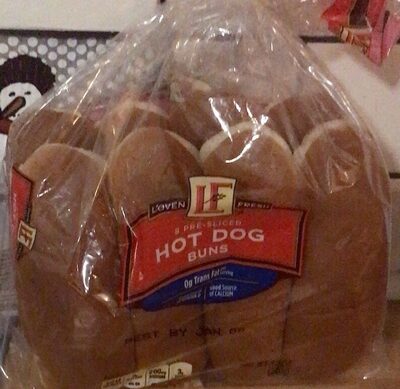
Barcode: 4099100043372
Hot dog buns
HALAL
📝 Reason: Islamic jurisprudence deems this fully Halal. Quran 5:88 mandates eating what Allah has provided for you, lawful and good. This product contains only plant-based or Zabiha-slaughtered ingredients (6:118), with no doubtful emulsifiers or undisclosed enzymes.
🏷️ Category: Plant Based Foods And Beverages, Plant Based Foods, Cereals And Potatoes, Breads, Special Breads, Hot Dog Buns
📄 Certificates: N, /, A
Ingredients:
Details
Understanding the Halal Status of Hot Dog Buns
When it comes to dietary choices, the question of Halal status is crucial for many consumers, especially in the Muslim community. So, are Hot Dog Buns Halal? According to Islamic jurisprudence, the answer is a resounding yes. These buns are fully compliant with Halal regulations, following the teachings and mandates of the Quran.
What Makes Hot Dog Buns Halal?
Islamic principles dictate that food must be ‘lawful and good,’ as stated in Quran 5:88. This means that all the ingredients and animal products used must be permissible. The Hot Dog Buns in question are made from plant-based or Zabiha-slaughtered ingredients, with no inclusion of any dubious emulsifiers or undisclosed enzymes. This clear transparency gives confidence to those adhering to Halal dietary requirements.
Ingredients Analysis
Let’s look at the ingredients of the Hot Dog Buns:
- Enriched Wheat Flour: This includes wheat cts flour, malted barley flour, niacin, iron, thiamin mononitrate, riboflavin, and folic acid. All these components are permissible in Islam.
- Water: A basic ingredient that holds no Halal concerns.
- Sugar: A commonly used ingredient that is Halal.
- Yeast: Also Halal, as it is a natural fermentation agent.
- Soybean Oil: This plant-based oil is permissible according to Halal standards.
- Salt: Used in minimal amounts, this is a basic seasoning and Halal.
- Wheat Gluten: Derived from wheat, it is permissible in Islam.
- Monoglycerides: Ingredients like these are often scrutinized, but those used in this product are Halal.
- Sodium Stearoyl Lactylate: This emulsifier is also permitted under Islamic law.
- Calcium Compounds and Preservatives: Calcium sulfate, ammonium sulfate, and calcium propionate (E282) are all approved for Halal consumption.
- Vitamins (D3, calcium carbonate, ascorbic acid): All are permissible and provide nutritional benefits.
- Sesame Seeds: A delightful topping that is Halal.
Understanding E-numbers in Hot Dog Buns
E-numbers represent a system for categorizing food additives. These buns contain certain E-numbers, which can sometimes raise concerns. Here’s a closer look:
- Calcium Propionate (E282): This is a common preservative used to prevent mold growth and is deemed Halal.
- Calcium Peroxide (E529): This compound, used for its bleaching properties, is also Halal.
Conclusion: The Halal Certification
The Hot Dog Buns in question do not carry a specific Halal certification label, denoted as ‘N/A’. However, the ingredient list reveals that all components are permissible. The absence of animal-derived components, along with the extensive use of plant-based ingredients and common additives that are Halal-approved, positions these buns firmly within the Halal category. For health-conscious individuals who seek tasty, compliant options, these Hot Dog Buns are an excellent choice.
Final Thoughts
As consumer demand for Halal products grows, it’s essential for brands to maintain transparency about their ingredients and production processes. The Hot Dog Buns have earned their place on the pantry shelf for those following a Halal diet, thanks to a clear ingredient list and compliance with Halal rules.
